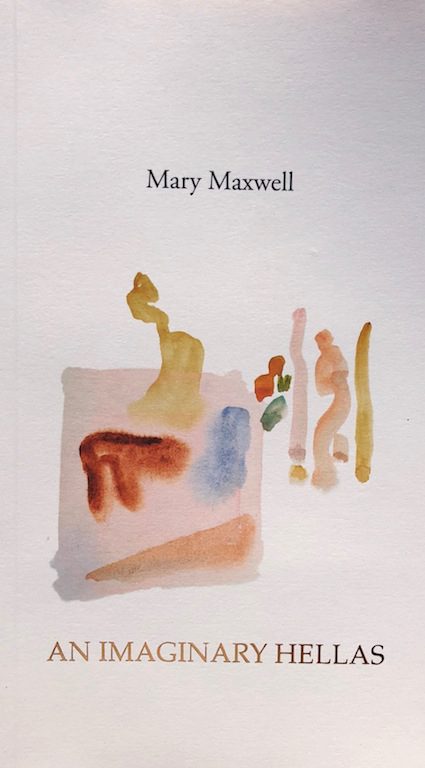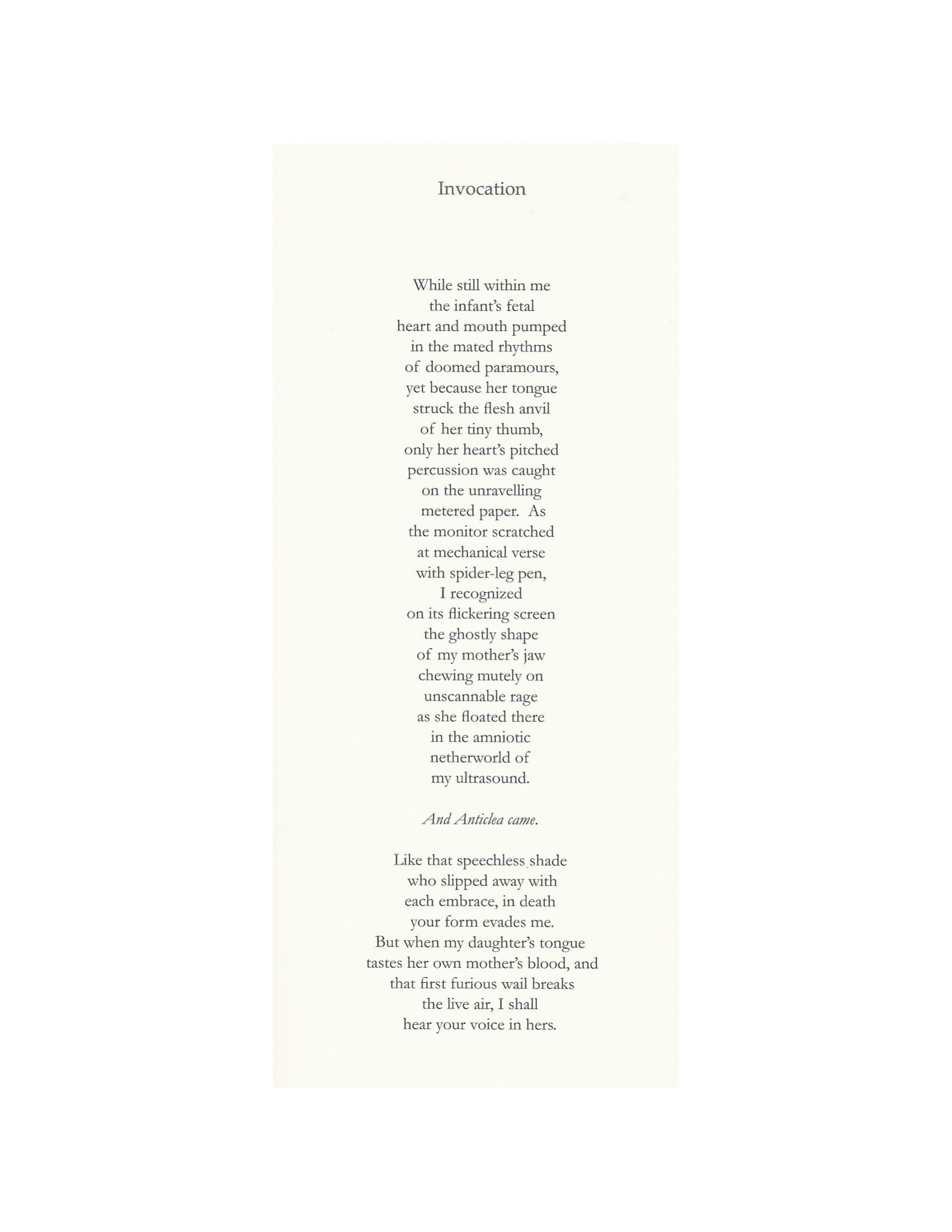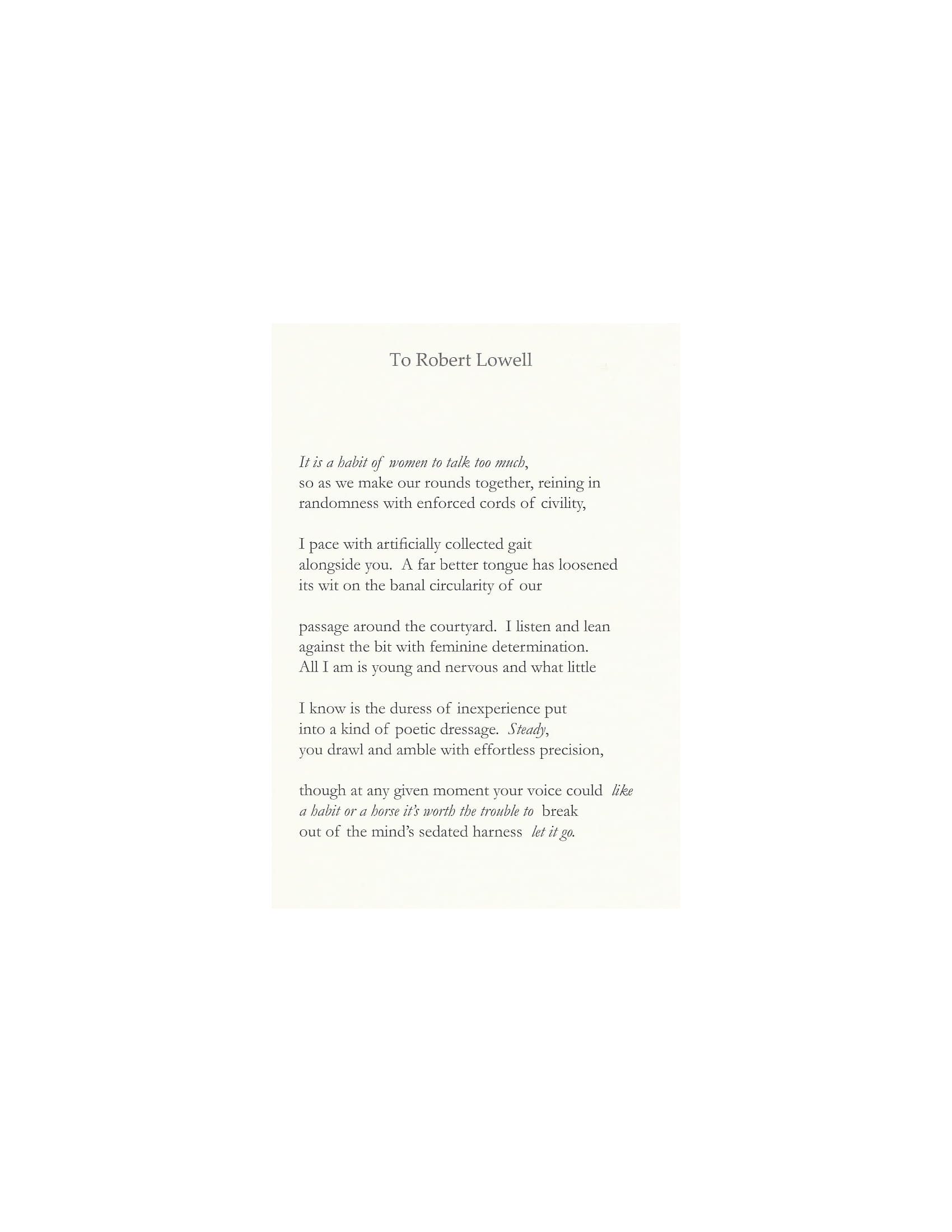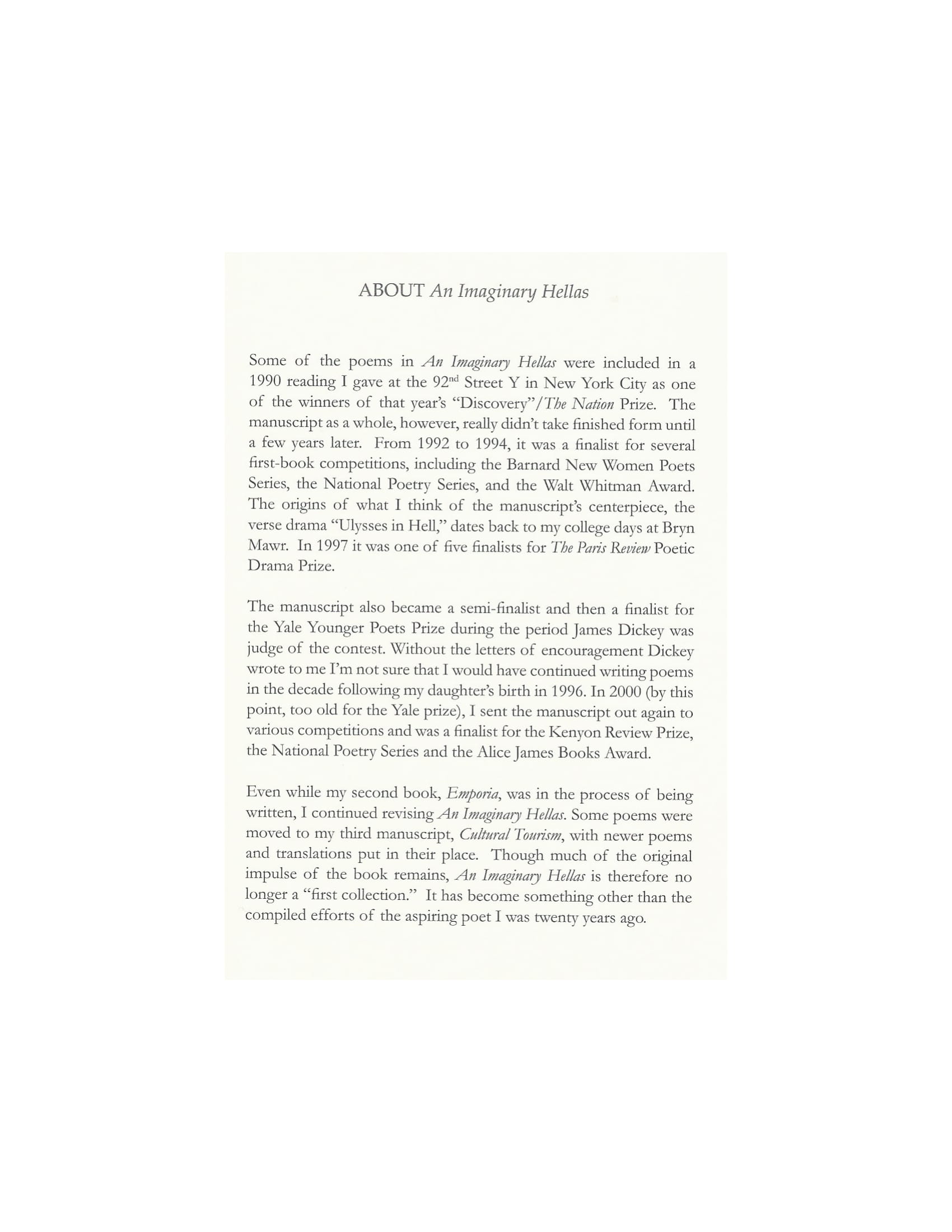Mary Maxwell’s first-book manuscript was a finalist for numerous awards, including the National Poetry Series, the Walt Whitman Award and the Yale Younger Poets Prize. Drawing on her studies in Greek and Latin poetry, these classics-inflected lyrics (some which first appeared in The New Republic, The Southern Review and Yale Review) drew acclaim for their spirited resurrection of the ancient world’s female voice. Her translations of the Roman Sulpicia and the deathless Sappho join literary ranks with the Celtic Boudicca and the unnamed girls of Pindar’s “Daphnephorikon.”
In her introduction to Maxwell’s Discovery/The Nation reading at the Poetry Center of the 92ndY in NewYork City, judge Lynn Emanuel observed:
Mary Maxwell’s subject is the canon, both literary and social, the received forms of love and literature. In her work, the personal realm of the romantic and the public realm of literature are joined by a myriad of deft stitches. Her poems to other writers have aspects of love poetry, and yet the poems are not set pieces of admiration. They are dialogues with the masters… And she is intelligent. And like many intelligent people, she is argumentative: She talks back. And she talks back from the gloriously conflicted and interesting position of a writer who is also a woman… A kind of wonderful bravura moves through these poems in the guise of self-deprecation as this writer simultaneously celebrates and undermines the canons of thinking and feeling.




